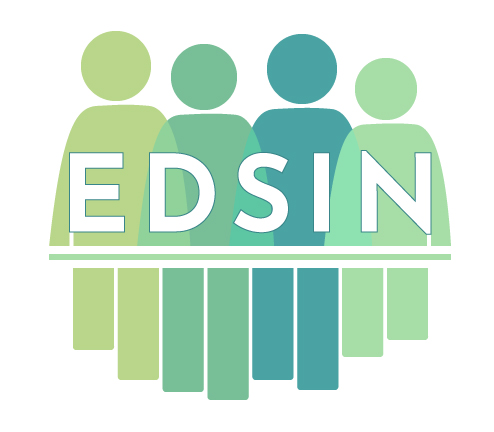Culturally Relevant Education in Environmental Data Science (CREEDS) Workshop
Engaging students with environmental data science has the potential to broaden participation from diverse communities and empower students to build marketable skills. However, the importance of establishing cultural and community relevance when framing this work is often overlooked, creating barriers to engagement.
This workshop will explore what it means to approach education around data science principles and skills from a culturally responsive perspective.
Applications are now closed but you can still sign up to receive updates about the meeting and opportunities to participate.
We will be holding a workshop where interdisciplinary teams will discuss existing and new approaches for developing culturally responsive data science curricula in the environmental sciences. This event, which aims to help make environmental data science more inclusive and accessible, is funded in part by a grant from Code for Science & Society, made possible by grant number GBMF8449 from the Gordon and Betty Moore Foundation (https://doi.org/10.37807/GBMF8449).
The Workshop Planning Committee consists of:
- Chair, Dr. Natasha Gownaris (Faculty, Gettysburg College)
- Dr. Alycia Crall (Research Scientist, National Ecological Observatory Network)
- Dr. Sam Donovan (Faculty, University of Pittsburgh; Leadership Team, QUBES)
- Dr. Gregory Goins (Faculty, North Carolina Agricultural and Technical State University)
- SherAaron Hurt (Deputy Director of Workshop & Meetings, The Carpentries)
- Dr. Alexis Racelis (Faculty, University of Texas Rio Grande Valley)
Please email Natasha Gownaris with any questions.
FAQs
Schedule
The synchronous components of this workshop will occur on August 10 and 17, 2021.
What questions will be asked on the workshop application?
The application includes basic application questions in addition to a request to list up to three projects, communities, or teams in which you are involved that are relevant to the workshop themes. Two open-ended questions are also included (400 characters max): (1) Please give a brief description of your general background, interests and research/work focus, as it relates to this workshop. (2) What is your motivation for applying to this workshop? How do you imagine this meeting informing any of the projects you listed above?
What are the workshop goals and outcomes?
The ultimate goal of the workshop is to contribute to making environmental data science more inclusive and accessible to students. We will learn from each other, and we will use insights from our discussions to provide recommendations and a framework for future interdisciplinary collaborations aiming to co-create socially and culturally relevant curricula.
What will the structure of the workshop be?
This workshop will be a 10-hour commitment of asynchronous and synchronous learning, collaborating, and co-creating. Participants will receive a stipend for their time and funds are available for participants who need childcare to attend. Prior to the workshop, we will share resources on topics such as inclusive pedagogy and community science to kickstart engagement with the issues we will be addressing during the workshop. Pre-workshop preparation will take no more than four hours of participant time (included in the 10-hour total) and can be completed at any time prior to the workshop. The synchronous workshop will include two, three-hour days. The workshop will apply a deconstruction/reconstruction approach. During the deconstruction phase, we will examine and discuss pre-existing data-driven environmental science curricula with a social or cultural component. Then, we will use a reconstruction approach to develop a framework for interdisciplinary development of relevant curricula. During this phase, we will also connect workshop participants with datasets that address environmental questions of interest to them and their communities.
Who can apply?
Anyone with interest should apply. We seek to create interdisciplinary teams that can bring diverse perspectives and expertise to these discussions. This will not only include data science educators and data scientists, but also community leaders who have firsthand experience with an issue that could be part of the curricula. If you have a pre-existing interdisciplinary collaboration that could inform this effort, we encourage you to apply as a team. Pre-existing collaborations are not, however, necessary. The event will be limited to 20 participants.
What are the next steps?
The call for applications will begin on May 21st with a deadline of June 11th. Invitations to attend will be sent out by June 18th. If you are interested in joining our discussions and/or on staying updated on the application process, please sign up here. Due to the small number of attendees we can accommodate (20), we will be providing a number of opportunities to engage in these discussions for anyone interested in contributing.
What if I can’t attend the conference but I am interested in engaging with this topic?
Though our event will be limited to 20 participants, we will have opportunities for the broader community to engage in our discussions and will share resources developed and collated as part of the workshop process. If you are interested in receiving communications related to these opportunities, please sign up here.
